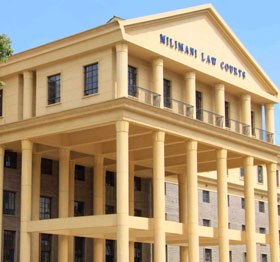By Commonwealth Press
Published November 9, 2019
 Ministers in charge of Law across the Commonwealth have unanimously resolved to remove barriers to access to justice in their respective countries.
Ministers in charge of Law across the Commonwealth have unanimously resolved to remove barriers to access to justice in their respective countries.
The biennial Commonwealth Law Ministers Meeting that concluded on November 7, 2019 with a set of proposed actions to be taken at the national and Commonwealth level in the Sri Lankan capital, Colombo, also pledged to deliver Sustainable Development Goal 16 on peace, justice and strong institutions by 2030.
RELATED: Law Ministers and Attorneys-General to discuss Barriers to Access to Justice
The Ministers agreed to address the justice needs of vulnerable persons, including by expanding specialised justice services and targeting root causes of legal problems.
“The Commonwealth Law Ministers Meeting is a powerful platform for mutual support and collaborative action to help all our member countries deliver on the values of our Commonwealth Charter, and towards achieving the Sustainable Development Goal,” says Patricia Scotland, Secretary-General of the Commonwealth. “The active circulation of ideas and solutions amongst such a diverse group of nations, and the resultant outcomes, are all testament to the value of the Commonwealth and its networks in supporting good governance and the rule of law.”
RELATED: Promoting Conservation through Wearable Art
 The Ministers considered a major study on international commercial arbitration in the Commonwealth. They agreed this method of resolving cross-border disputes could be especially helpful for small and medium-sized enterprises.
The Ministers considered a major study on international commercial arbitration in the Commonwealth. They agreed this method of resolving cross-border disputes could be especially helpful for small and medium-sized enterprises.
Countries were encouraged to consider signing the New York Convention on international commercial arbitration and adopt compatible national laws.
RELATED: Kenyan to Lead Africa’s Climate Change Reversal Efforts
The Ministers also welcomed a package of anti-corruption benchmarks, drafted by the Secretariat, designed to help governments and public sector bodies measure their anti-corruption activities, and make improvements if needed.
The benchmarks cover 25 areas, including corruption offences and public procurement. They will be submitted for final approval to Commonwealth Heads of Government at their biennial meeting in June 2020.
RELATED: Human Trafficking-Themed Film Returns to Kampala National Theatre
 The Ministers debated the transformative impact of technology in the delivery of justice, including ethical considerations. They agreed to explore the creation of Commonwealth guidelines on the use of artificial intelligence in the legal sphere.
The Ministers debated the transformative impact of technology in the delivery of justice, including ethical considerations. They agreed to explore the creation of Commonwealth guidelines on the use of artificial intelligence in the legal sphere.
Countries agreed to support one another in adopting new technologies to ensure timely, convenient and equal access to justice, in a low-cost and people-friendly manner.
RELATED: Master of Soukous and Rumba Music Rests
Finally, ministers called for a study on restorative justice in the Commonwealth – reconciling offender, victim and community to resolve disputes – taking note of indigenous, traditional and customary justice systems. The findings may be developed into Commonwealth good practices on the issue.
The outcomes of the law ministers meeting will be tabled at the Commonwealth Heads of Government at their next meeting in Kigali, Rwanda, in June 2020.




